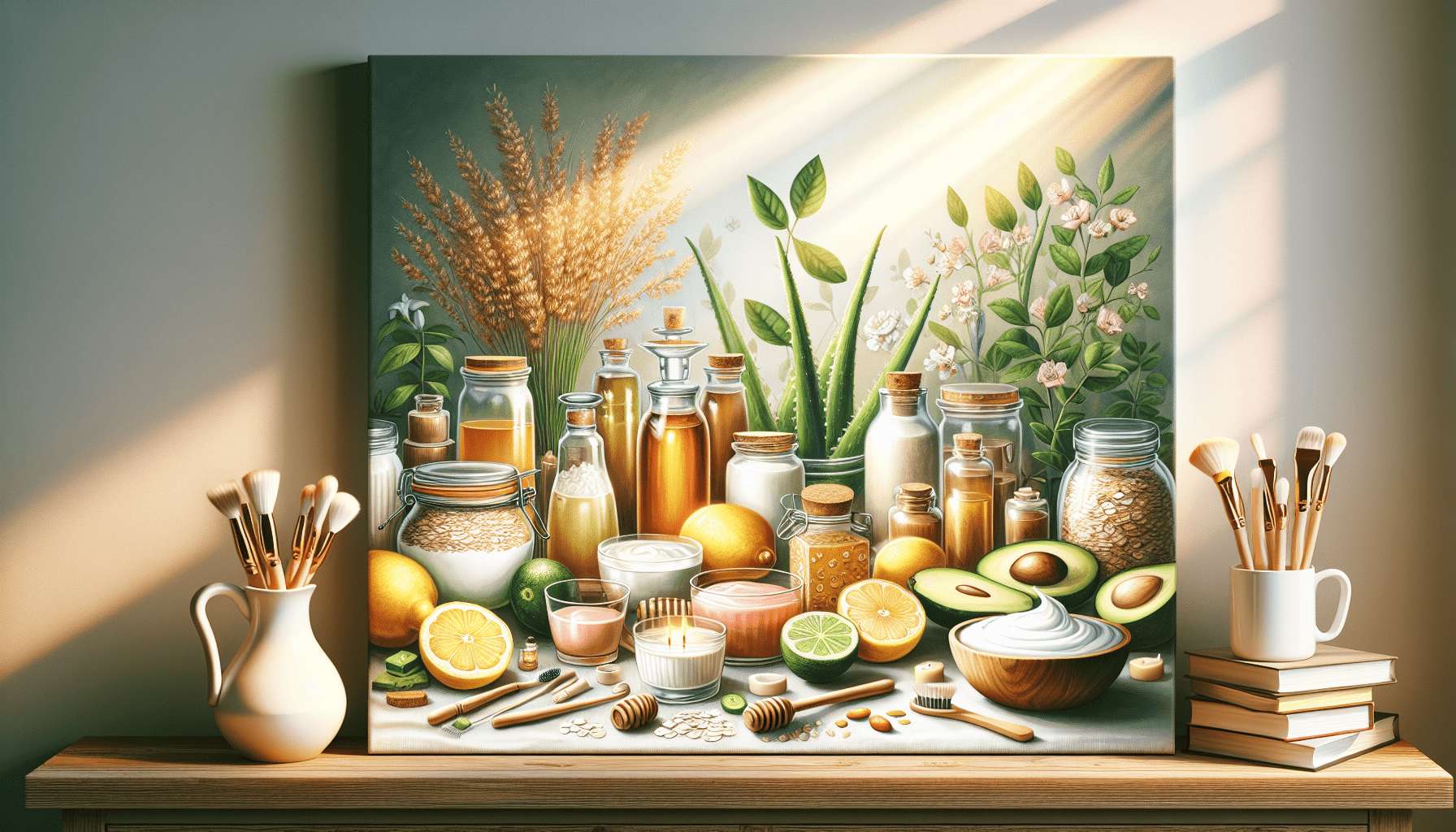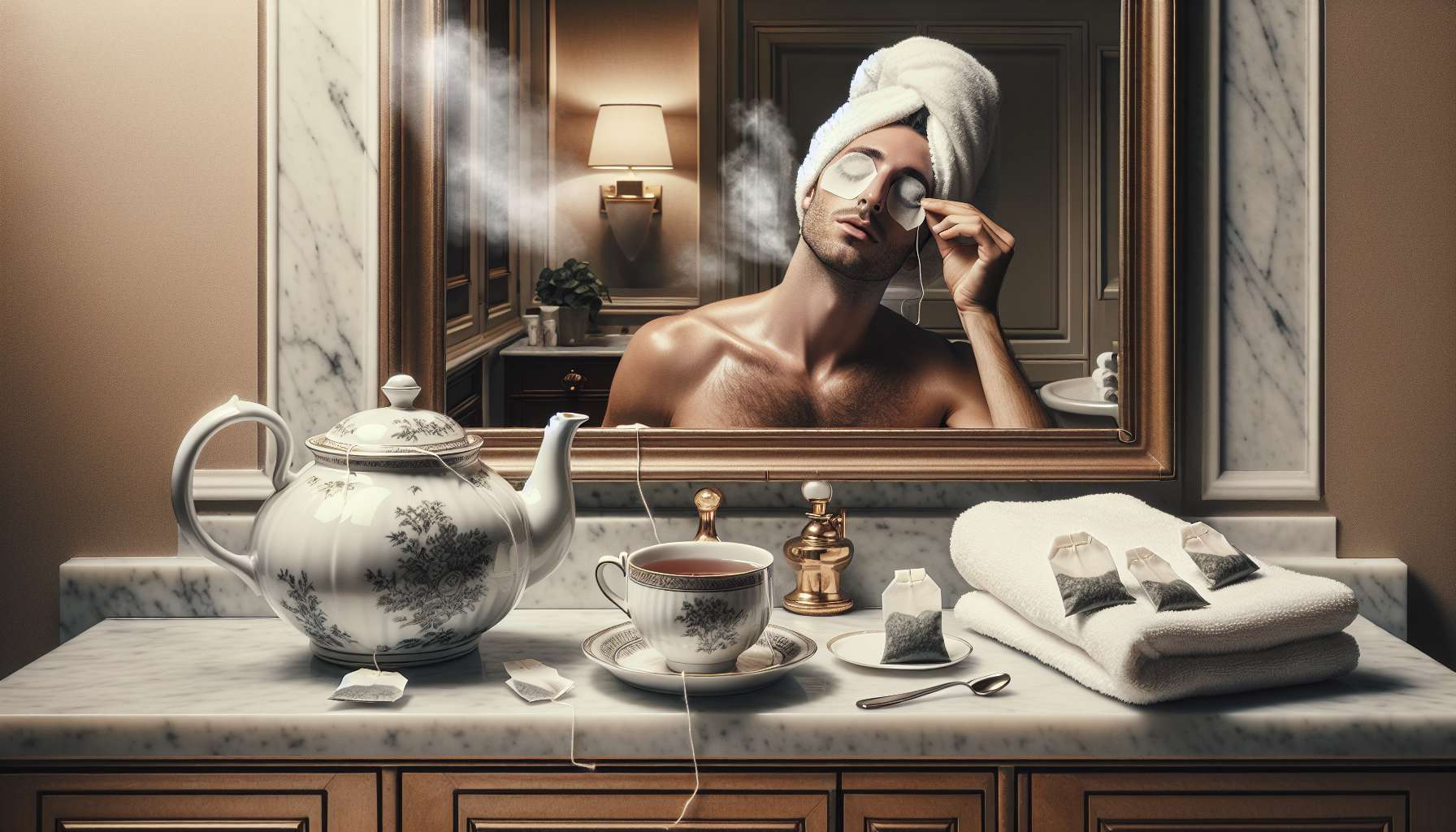Homemade Skincare Safety: A Comprehensive Guide
When it comes to skincare, many of us are increasingly turning to homemade remedies for a more natural and personalized approach. From DIY face masks to homemade scrubs, the allure of using kitchen ingredients for skincare is undeniable. However, amidst the growing trend of homemade skincare products, a crucial question arises – is homemade skincare safe?
In this in-depth guide, we will delve into the realm of homemade skincare safety, exploring the benefits, potential risks, and essential considerations to ensure your DIY skincare routine is both effective and safe. Let’s unravel the complexities of homemade skincare safety and empower you to make informed decisions about your skincare regimen.
The Rise of Homemade Skincare
Homemade skincare has gained immense popularity in recent years, fueled by the desire for natural, chemical-free products and the appeal of creating personalized skincare solutions. With a plethora of recipes available online and the growing awareness of the harmful effects of certain chemicals in commercial skincare products, more and more people are turning to their kitchen cabinets for skincare solutions.
From nourishing avocado masks to exfoliating coffee scrubs, homemade skincare offers a range of benefits, including cost-effectiveness, customization, and the satisfaction of knowing exactly what ingredients are going on your skin. However, despite these advantages, the safety of homemade skincare products remains a critical concern that warrants careful consideration.
The Importance of Safety in Homemade Skincare
While homemade skincare products can be natural and beneficial for the skin, they also pose certain risks if not prepared or used correctly. Without the rigorous testing and quality control measures employed by commercial skincare brands, homemade products may harbor bacteria, mold, or other harmful contaminants that can lead to skin irritation, infections, or allergic reactions.
Furthermore, the use of potent ingredients or improper formulations in DIY skincare products can cause adverse effects, such as chemical burns, sensitivity, or even long-term damage to the skin. As such, understanding and prioritizing safety in homemade skincare is paramount to safeguarding your skin’s health and well-being.
Key Considerations for Homemade Skincare Safety
When venturing into the world of homemade skincare, there are several key considerations to keep in mind to ensure the safety and efficacy of your DIY products. Here are some essential guidelines to follow:
1. Ingredient Selection
One of the most critical aspects of homemade skincare safety is the selection of ingredients. Opt for high-quality, organic, and skin-friendly ingredients to minimize the risk of irritation or adverse reactions. Avoid using expired or questionable ingredients, and always perform a patch test before applying a new homemade product to your face or body.
Additionally, be mindful of potential allergens or sensitizing agents in your ingredients, especially if you have sensitive skin. Common allergens in skincare products include fragrances, essential oils, and certain botanical extracts. Conduct thorough research on each ingredient’s benefits, risks, and compatibility with your skin type before incorporating it into your DIY recipes.
2. Hygiene and Sanitation
Proper hygiene and sanitation are crucial when preparing homemade skincare products to prevent contamination and microbial growth. Wash your hands thoroughly before handling ingredients, sterilize utensils and containers, and use clean, airtight packaging to store your DIY creations. Avoid introducing moisture into your products, as it can promote bacterial growth and compromise their safety.
Furthermore, consider adding natural preservatives, such as vitamin E oil or grapefruit seed extract, to extend the shelf life of your homemade skincare products and inhibit the growth of harmful microorganisms. Regularly inspect and smell your creations for any signs of spoilage, and discard any products that show changes in color, consistency, or odor.
3. Formulation and Dilution
Proper formulation and dilution are essential factors in homemade skincare safety, as using undiluted or concentrated ingredients can lead to skin irritation or chemical burns. Follow reputable recipes from trusted sources, such as skincare experts, dermatologists, or reputable websites, to ensure the correct proportions and concentrations of ingredients in your DIY products.
Be cautious when using potent or acidic ingredients, such as lemon juice, vinegar, or essential oils, as they can be harsh on the skin if not diluted properly. Always dilute these ingredients in a carrier oil or water before applying them to the skin, and start with a small concentration to test your skin’s tolerance before increasing the potency.
4. Sun Protection
Sun protection is a vital aspect of skincare safety that should not be overlooked, whether you use commercial or homemade products. Certain ingredients in homemade skincare, such as citrus oils or exfoliating agents, can increase the skin’s sensitivity to sunlight and heighten the risk of sunburn or sun damage.
When using homemade products that contain photosensitizing ingredients, such as citrus essential oils or alpha hydroxy acids (AHAs), be diligent about applying sunscreen with a high SPF to protect your skin from harmful UV rays. Incorporate sun protection into your daily skincare routine to maintain the health and integrity of your skin, regardless of the products you use.
Expert Opinions on Homemade Skincare Safety
Experts in the field of skincare and dermatology emphasize the importance of caution and meticulousness when it comes to homemade skincare products. Dr. Jane Smith, a board-certified dermatologist, advises, “While homemade skincare can be a fun and creative way to care for your skin, it’s essential to approach it with the same level of care and consideration as you would with commercial products.”
Dr. Smith recommends consulting a dermatologist or skincare professional before embarking on a homemade skincare journey, especially if you have sensitive skin, existing skin conditions, or a history of allergies. Seeking expert guidance can help you navigate the complexities of homemade skincare safety and tailor your DIY products to meet your skin’s specific needs.
Common Misconceptions about Homemade Skincare Safety
Despite the increasing popularity of homemade skincare, several misconceptions persist regarding its safety and efficacy. One common misconception is that natural ingredients are always safe for the skin and free of side effects. While natural ingredients can offer numerous benefits, they can also cause adverse reactions or sensitivities in certain individuals.
Another misconception is that DIY skincare products are inherently safer than commercial products due to their natural origins. While homemade skincare allows for greater control over the ingredients used, it also lacks the stringent testing, quality control, and stability assessments conducted by professional skincare brands.
It is crucial to approach homemade skincare with an informed and discerning perspective, recognizing that safety and efficacy depend on factors such as ingredient selection, formulation, and individual skin type. By dispelling common misconceptions and educating yourself on the nuances of homemade skincare safety, you can enjoy the benefits of DIY skincare while minimizing risks to your skin’s health.
Frequently Asked Questions about Homemade Skincare Safety
1. Are homemade skincare products safe for all skin types?
While homemade skincare products can be suitable for various skin types, it is essential to tailor your DIY recipes to your skin’s specific needs and sensitivities. Conduct patch tests, use gentle ingredients, and consult a dermatologist if you have concerns about using homemade products on your skin.
2. Can homemade skincare products treat specific skin conditions?
Homemade skincare products can complement professional treatments and skincare routines, but they may not be as effective as clinically proven treatments for specific skin conditions. Consult a dermatologist for personalized recommendations on managing skin conditions with homemade or commercial products.
3. How long do homemade skincare products last?
The shelf life of homemade skincare products varies depending on the ingredients used, storage conditions, and preservative content. Generally, products without preservatives should be used within a few days to a week, while those with natural preservatives can last several weeks to a few months.
To Wrap Things Up
Homemade skincare safety is a multifaceted and nuanced topic that requires careful attention to detail, ingredient selection, and formulation. By following best practices, conducting patch tests, and prioritizing hygiene, you can enjoy the benefits of DIY skincare while minimizing the risks to your skin’s health.
Remember that skincare is a personal journey, and what works for one person may not necessarily work for another. Experiment, explore, and educate yourself on the intricacies of homemade skincare safety to create a regimen that suits your skin’s unique needs and preferences.
As you embark on your homemade skincare journey, keep in mind the importance of balance, moderation, and consistency in caring for your skin. Whether you choose commercial products, homemade remedies, or a combination of both, prioritize safety, efficacy, and self-care to achieve healthy, radiant skin that glows from within.




